Kuldeep Cariappa & Naveen Shankar On The Quiet Rage Of Nodidavaru Enanthare
In this joint interview with Subha J Rao, the filmmaker and the actor discuss the making of Nodidavaru Enanthare, a film that dives deep into emotional repression, masculinity, and personal evolution.
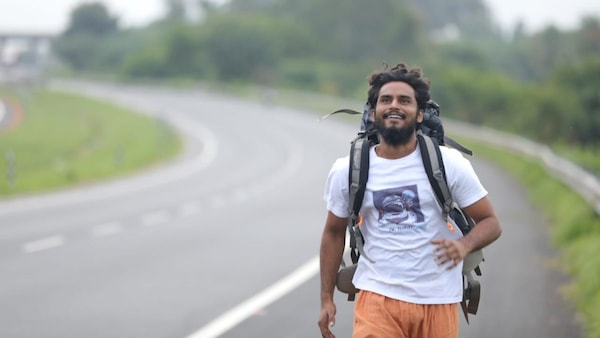
Still from Nodidavaru Enanthare.
Last Updated: 11.05 PM, Apr 29, 2025
THERE'S A SCENE in Kuldeep Cariappa’s Kannada film Nodidavaru Enanthare that’s telling. Siddharth (Naveen Shankar), the lead man, wades his way through life, struggling silently. Once, he needs to enter his boss’s cabin. His face is unfeeling, his body stiff, but he expends much energy to slap a smile on his face, and then knocks on the door. For all practical purposes, Siddharth puts on a show for every social interaction because he does not want anyone, including himself, to feel a thing.
What happens then when he has to confront his past life, flee and wander before finding home again? That’s what Kuldeep attempts in Nodidavaru Enanthare (translates to 'what will people say?'). This is his first full-length feature after dabbling in ads, being part of the Kannada anthology BTS (Behind the Scenes), the award-winning documentary Unseen, about people’s plight during the COVID-19 lockdown, and more.
Since his debut in Gultoo (2018), Naveen has been making some interesting choices as a performer, mixing up films that celebrate craft and well-made commercial fare too. Nodidavaru is an important film in his career, because it taps into his ability to be still and quiet, something not many actors get a chance to do on screen.
In a joint conversation, Kuldeep and Naveen speak about setting the tone of the movie, bringing the character of Siddharth to life, and portraying a person’s inner journey. Edited excerpts below:
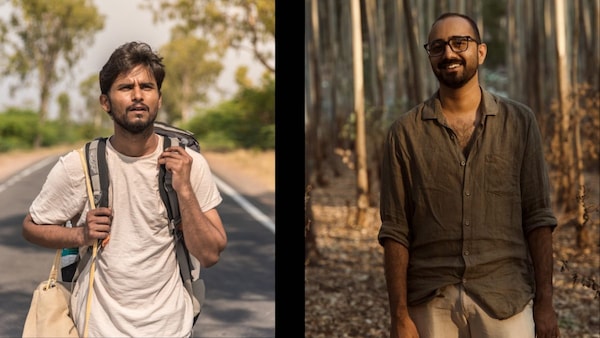
Siddharth is not an easy man to like. He’s rude, he has an open animosity towards women… Tell us how this character was written, and then essayed on screen?
Kuldeep: I had imagined that he would occupy a grey zone throughout the film. Every character in the film, actually, is going through something. And, their actions come from a place of their reasoning, which we might not be privy to. I initially wrote this film with a 55-year-old protagonist going through a midlife crisis. When I finalised this draft that I shot, I decided to write a man who needs to be heard, seen and held. I liked this version, because it is not too explored.
Naveen: When you get such well-written characters with depth, your work as an actor becomes a little easier. You just have to make it yours. As an actor, one craves a character and film with nuance, layers, and dimensions. Additionally, this film began midway through a person’s life, and it unfurls bit by bit. You know straight away that Siddharth does not smile, but why does he not? Kuldeep and I worked on the backstory, on how he was as a child, what happened, what incidents affected him. As a result, at just one look, you understood why he is the way he is. This script gave me joy.
Vulnerability, again, is something not often written into a lead role. But to see an actor not just acknowledge it, but flaunt it, is interesting.
Kuldeep: Luckily, the producers and Naveen were interested in that silent space, one that the world considers less masculine. Naveen and I considered the vulnerability of Siddharth going through a lot. We are so used to men not feeling their emotions on screen that this might have seemed like something new. Even after I wrote this, I kept thinking and recalculating the dynamics of male emotion.
Naveen: It becomes easier to inhabit this zone when you have a director who tells you to feel things, who tells you your character has not eaten, not because you don’t have money, but because you are not interested in eating anymore. Working with this knowledge helps you convey the feeling through performance.
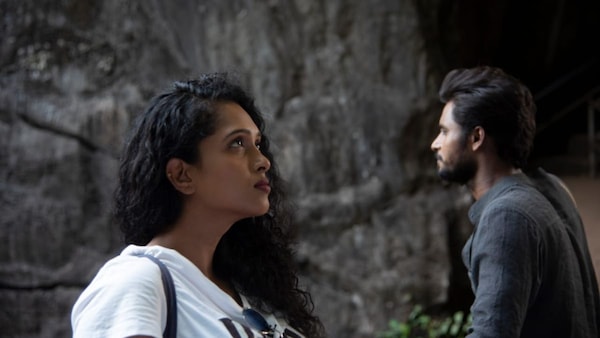
How easy was it to stay in character, Naveen?
Not very easy, but the script demanded that Siddharth’s personality should be carried till the last frame. And, I knew that if I got the tone right, the audience wouldn’t be misled by Siddharth’s character.
If you observe the film, whatever happens in the present has some equivalent in the past. The scene with the intern, who is genuinely trying to be understanding, reminds him of the partner who left him and summarises all that he’s been through.
But, Siddharth manages to carve a different personality for his office — even though he snaps occasionally, his anger is of the simmering kind.
It helped that I was comfortable being vulnerable. I don’t see a character as vulnerable or strong. I see characters and their traits. Which is how I have constantly chosen a variety of roles — in Hoysala, Kshetrapati, Dharani Mandala Madhyadolage and Salaar. I don’t worry about the greyness of a role, I just see what my character’s contribution to it is.
How easy is it to write, direct and portray internal journeys, warts and all?
Kuldeep: Not easy, unless you have read and internalised the characters. In Siddharth’s case, the flip in his journey happens when he meets Mallanna and Nadiya. These are brief interactions, but are shown with emphasis, because of the internal journey they trigger. Not everything he does is big, but Nadiya lends him perspective. And then, gradually, he decides this is how he’s going to be. He slowly learns to accept others, including his mother. He has no questions about her leaving the house, even though society expects her to reply.
Inversely, men are known to abandon their families in the quest for something bigger, and they are celebrated.
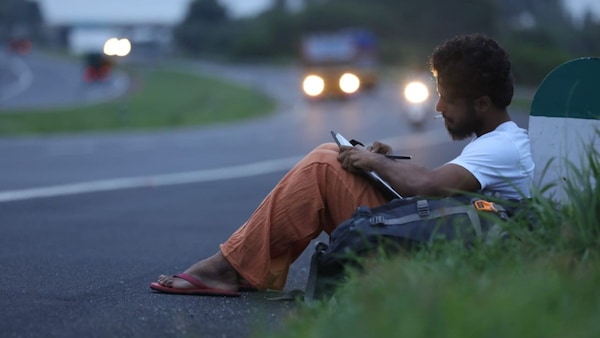
How did the team manage to get Padmavati Rao on board?
Kuldeep: We were stuck with her in our minds and unable to think of anyone else. We got through to her through a friend, and she allowed me an hour and a half for narration — we ended up speaking for four hours, about the characters and their reasoning. She agreed to work with us.
When the mother and son meet, it is not sappy, but there’s a certain anger that is alive in the son…
Naveen: True. Over the years, Siddharth has seen his mother’s progress from afar. So, how does he react when he sees her? He has a long list of complaints, and they come out first. From friends asking about his mother to selfish relatives who are trying to derive some benefit from him, he blames everything on his mother. Because, all his life, he has allowed this one abandonment to overtake everything else. But, there is also an unmet yearning, and that reflects too.
How important is this film in your filmography, Naveen?
This marks another stop in the journey of my evolution as an actor. Once we become popular, our image is set, and it is difficult to break it and do experimental work. This is the time to experiment. I celebrate all kinds of movies. There is a market for both. In this film, there was scope for internalising the character’s traits and belief systems. There was a physical change, and the challenges from learning something new. I will leave you with a thought: “Proving yourself to the market comes after proving to yourself that you can do it”.
You got some great performances from the cast, especially Rajesh Mariyammanahalli, who plays Mallanna…
Kuldeep: Yes, Rajesh is 18 now, was 15 when we did the movie. He is a theatre actor, and I knew that if trained, he would be able to do well. He proved us right. A few months before the shoot, he stayed for four days with us. We did long walks and discussed his dialogues. I would sometimes tell him not to blink, and he would implicitly obey. So, he had the ability to follow instructions even while he was naturally creative.
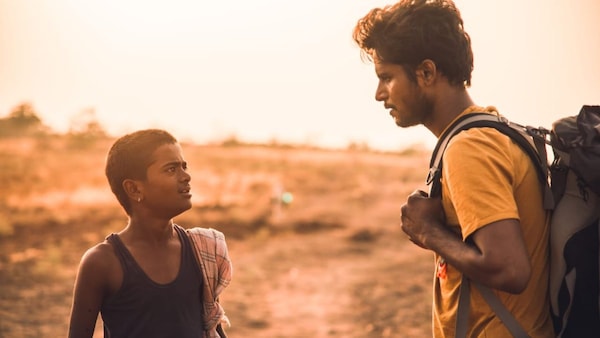
What has been the most moving feedback you’ve received
When I was travelling by road, someone called out. And, I am not popular enough for someone to recognise me by face. A person studying medicine met me, and I could see his voice was trembling, and his hands were shaking. He said he was thankful I made the movie, because he had tried to end it all once, but learnt to find strength. Another person taking their final exams told me he felt his problems were insurmountable, but now knows they are not.
Nodidavaru Enanthare is currently streaming on Amazon Prime Video.
Subscribe to our newsletter for top content, delivered fast.
